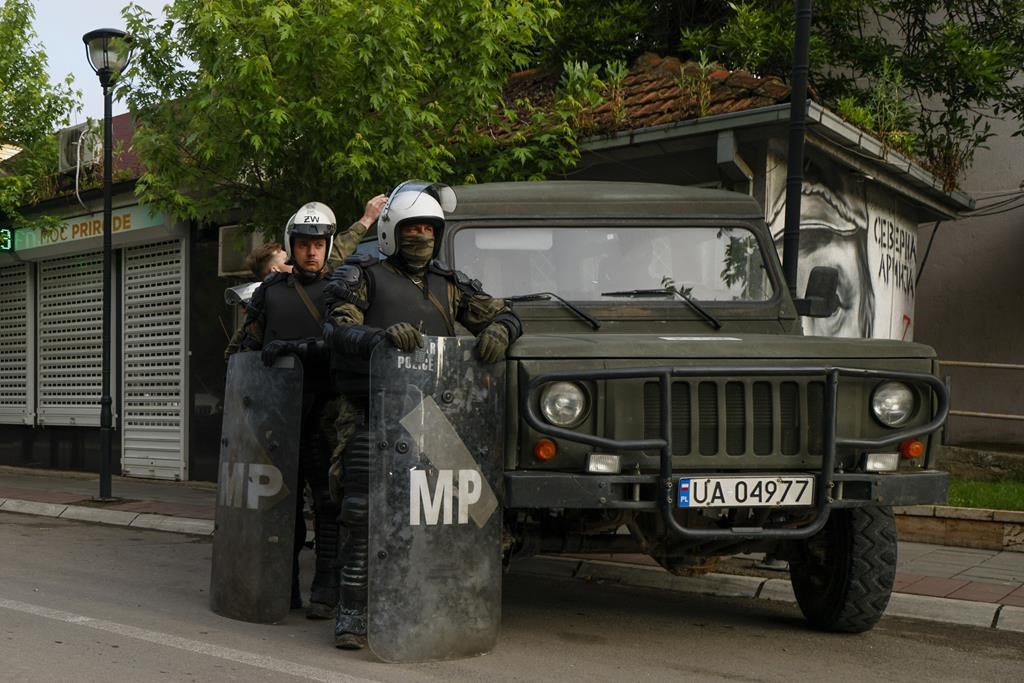ZVECAN, Kosovo (AP) — Ethnic Serbs in northern Kosovo on Monday tried to take over the local government buildings where Albanian mayors entered last week with the help of police.
Kosovar police and NATO-led Kosovo Force were seen protecting the municipality building in Zvecan, one of the four communes to hold snap election last month that was largely boycotted by ethnic Serbs. Only ethnic Albanian or other smaller minority representatives were elected in the mayoral posts and assemblies.
More than a dozen Serbs and five Kosovar police officers were injured in clashes last Friday, and Serbian troops on the border with Kosovo were put on high alert the same day.
Ethnic Serbs in northern Kosovo, who are a majority in that part of the country, tried to block recently elected ethnic Albanian officials from entering municipal buildings. Kosovo police fired tear gas to disperse the crowd and let the new officials into the offices.
The United States and the European Union condemned Kosovo’s government for using police to forcibly enter the municipal buildings.
On Sunday evening, France, Germany, Italy, the United Kingdom, plus the United States and the European Union in Kosovo, again issued a statement saying they strongly caution “all parties against other threats or actions which could impact on a safe and secure environment, including freedom of movement, and that could inflame tensions or promote conflict.”
At a rally Friday evening in Belgrade with his supporters, Serbian President Aleksandar Vucic said “Serbia won’t sit idle the moment Serbs in northern Kosovo are attacked.”
However, any attempt by Serbia to send its troops over the border would mean a clash with NATO troops stationed there.
A 2013 Pristina-Belgrade agreement on forming the Serb association was later declared unconstitutional by Kosovo’s Constitutional Court, which said the plan wasn’t inclusive of other ethnicities and could entail the use of executive powers to impose laws.
The two sides have tentatively agreed to back a EU plan on how to proceed, but tensions still simmer.
The U.S. and the EU have stepped up efforts to help solve the Kosovo-Serbia dispute, fearing further instability in Europe as war rages in Ukraine. The EU has made it clear to both Serbia and Kosovo they must normalize relations to advance in their intentions to join the bloc.
The conflict in Kosovo erupted in 1998 when separatist ethnic Albanians rebelled against Serbia’s rule, and Serbia responded with a brutal crackdown. About 13,000 people, mostly ethnic Albanians, died. NATO’s military intervention in 1999 eventually forced Serbia to pull out of the territory. Washington and most EU countries have recognized Kosovo as an independent state, but Serbia, Russia and China have not.
___
Semini reported from Tirana, Albania.
Radul Radovanovic And Llazar Semini, The Associated Press







